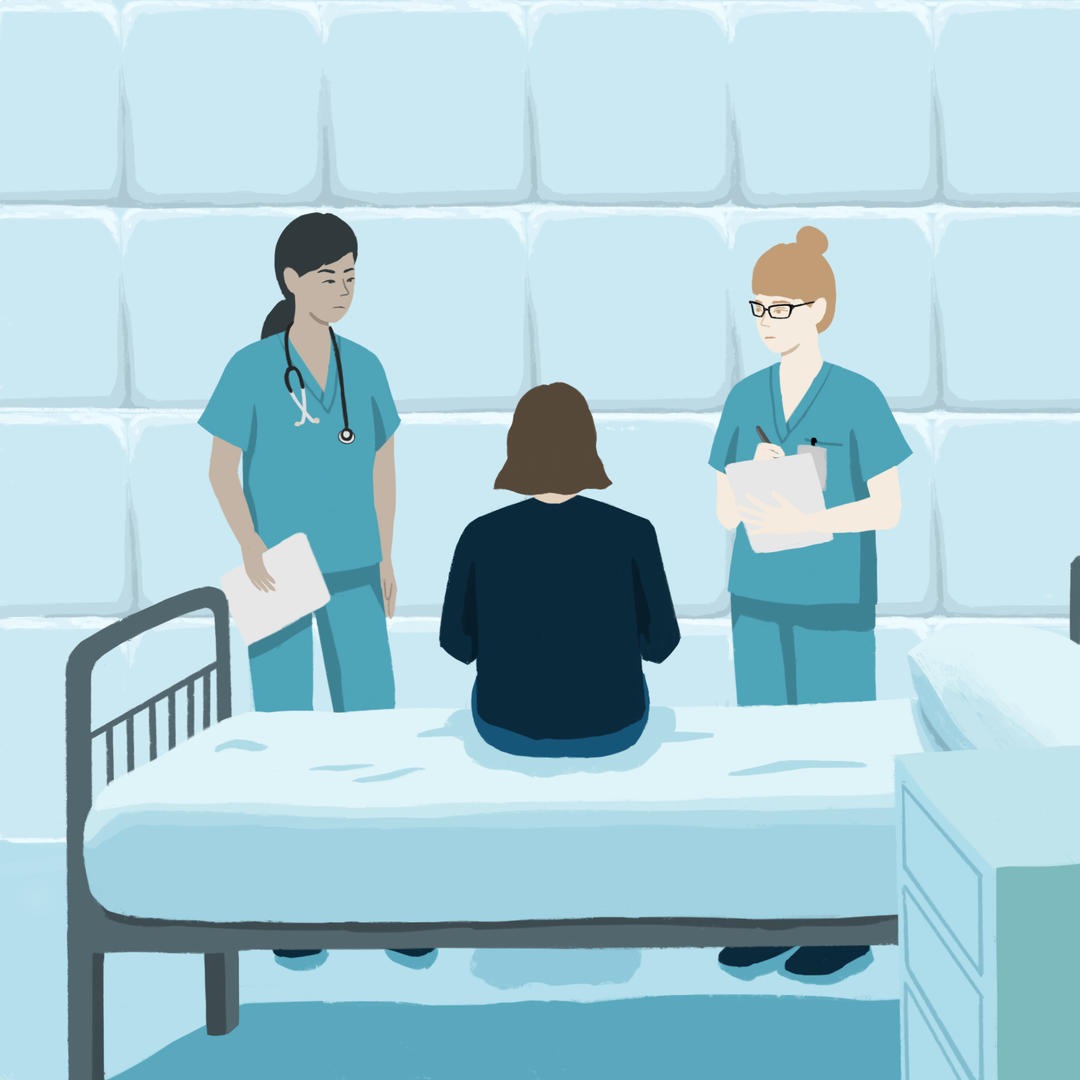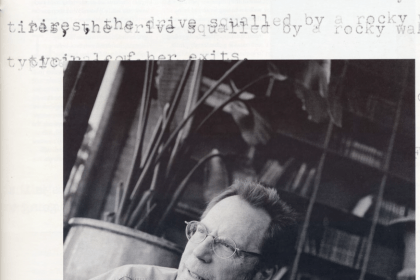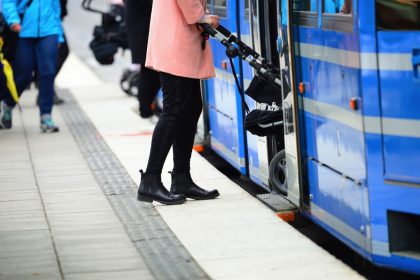As a family nurse practitioner, Jenna Zalk Berendzen treated women suffering from postpartum depression. She never imagined the same disorder would land her in an inpatient psych unit.
By Jenna Zalk Berendzen, as told to Tracy Collins Ortlieb
April 17, 2019
In March, the US Food and Drug Administration approved the first medication specifically targeted to treat postpartum depression (PPD). As a nurse practitioner in women’s health, I was thrilled at the announcement of Zulresso, a drug promising to eradicate postpartum depression within 60 hours. But as a woman who suffered life-threatening PPD myself, the news was more complicated: I could only imagine what a difference such a drug would have made in my harrowing postpartum experience.
In 2011, during my pregnancy with my first son, I had definite expectations around the entire experience—adhering to my birth plan, breastfeeding, every detail of labor and delivery, and life as a new mother. Even though I was a nurse trained in family medicine, accustomed to seeing a pregnant woman‘s best plans waylaid by complications, I didn’t entertain that it would be anything different than what I expected. I felt healthier during my pregnancy than I ever had. I felt invincible.
But I brought more home from the hospital than my newborn. Within days, I was crippled by profound insomnia. Caring for Maxwell through sleepless days and nights left me anxious, despairing. I was plagued by intrusive thoughts: I’ve made a terrible decision. We should have never had children. I can’t be a good mother.
In addition to the mental anguish, I began suffering severe pain. My motherhad died of an undiagnosed autoimmune disease, so I was convinced this was more than depression. I reached out beyond primary care to specialists, rotating through doctor after doctor and medication after medication. In addition to antidepressants, my physical symptoms were also treated with painkillers, muscle relaxers—drugs that forced me to stop breastfeeding, yet another heartbreak. My care team was well intentioned, but weeks later, no one had an answer or a remedy.
The depression deepens
Still in pain and exhausted, I visited the emergency room three times. Each time, I was given another medication and sent home. Over those weeks, I didn’t have an active suicide plan, just passing thoughts that Max would better off without me and that I “shouldn’t be here.” But one night, I clearly remember lining a dozen bottles of pills in front of me and being very, very close to taking them.
The next morning, I begged to be admitted to a general psychiatric unit.
It was an awful experience. This was no postnatal psych unit filled with teary moms leaning on one another; it was a locked unit with patients who had been court-ordered to be there or had a history of violence. Even visits from my husband and Max were scary. We were closely observed in a sterile “family room” by two nurses—it wasn’t therapeutic to any of us. Now, in addition to not feeling safe at home, I didn’t feel safe in a hospital, and that was terrifying. I felt I had no place to go or be.
I no longer had a suicide plan but knew I couldn’t stay in the hospital, either. Back home, nothing was really changed; I just kept moving on, living minute by minute. My husband, sister, aunt, and village took round-the-clock turns being with me because I knew I wasn’t safe to be alone, with myself or with my son. Those weeks were the most horrible time of my life, and I still marvel that we all survived them.
Handed a lifeline
One afternoon, I spoke to a nurse friend who knew I was struggling, and confessed to her I didn’t think I was going to survive this. By total happenstance, my friend had just heard an NPR story about the opening of a new women’s inpatient psychiatric unit at the University of North Carolina at Chapel Hill—the first of its kind in the country. As soon as she hung up, she called UNC with my case.
At that point, I was perilously close to dying by suicide. I didn’t want to, but I was exhausted, fighting so hard every minute of every day. The next day, UNC’s Center for Women’s Mood Disorders rang, triaging me over the phone. I was elated to have been “sick enough” for admission; there were five beds in the only perinatal unit in America, and I was offered one. I had been drowning, and I had just been handed a lifeline.
We flew immediately to Chapel Hill, where I was admitted to the unit. Right away, it was very clear this was night-and-day from a typical psychiatric inpatient unit. The program was holistic, incorporating occupational therapy, physical therapy, yoga, and spiritual care. In addition to medication management, we drew, created vision boards, and journaled. Being with fellow PPD patients allowed us to share similar feelings, making me feel less alone, and giving me hope that people have survived it and that I could too.
Throughout my weeks in the unit, my husband, baby, and family members visited freely, preparing us to return to life at home. There was so much support around our family unit, and the message that “This isn’t you struggling through the darkness alone, this is your family getting well.” Weeks later, I returned home to months of outpatient treatment and recovery, but now with a new certainty: I was going to be safe.
Sharing postpartum struggles
My experience inspired me to earn a doctorate of nursing practice in psychiatric mental health. In September, I’ll join a local psychiatric group with the goal of specializing in perinatal mood anxiety disorders. And on a more personal level, I make an effort to connect with other new mothers in the community—not as a nurse, but as a friend, to share my story. My friends jokingly call me the “World’s Worst Baby Shower Guest,” but I want to create that space, to let women know parenting is hard, and just be real about it so people feel comfortable asking. I want to be seen as a person who survived.
While Zulresso would have undoubtedly made my journey easier, as both a clinician and a patient, I find it a thrilling new tool in postpartum treatment. It’s an affirmation of PPD as a treatable disease, and the first major step in an ongoing conversation about severe PPD. Not every victim of postpartum depression will need inpatient treatment, but we need traditional therapies and the evolution of new drugs, because they have and will continue to save lives. I’m living proof.




